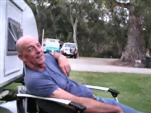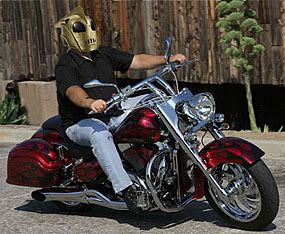Hi folks,
Many moons ago I posted a topic about mounting a license plate light.
One central conclusion by members was that the BEST WAY TO GROUND was to have separate grounding wires from each load to a grounding bar.
Here are my questions...
1)Since, for example, my tailights and amber running lights have 'internal grounds' e.g. they are designed to be grounded to the frame via the screw that holds them to the frame, I assume grounding these to a 'grounding bar' would involve running a wire from the mounting screw to the bar??
2) The grounding bar--where do you get same? Do you attach it to the frame? And, I assume you run a wire from the bar to the grounding wire to the car? If not, I don't get the point of using a grounding bar attached to the trailer frame with no connection to the car ground--how is that different from grounding to the frame alone?
Light in these dark corners would be appreciated.
Thanks,
Jim
Grounding questions...frame vs grounding bar...
17 posts
• Page 1 of 2 • 1, 2
Grounding questions...frame vs grounding bar...
A disposition to preserve, and an ability to improve, taken together, would be my standard of a statesman...
But what is liberty without wisdom, and without virtue? It is the greatest of all possible evils; for it is folly, vice, and madness, without tuition or restraint.
Edmund Burke
But what is liberty without wisdom, and without virtue? It is the greatest of all possible evils; for it is folly, vice, and madness, without tuition or restraint.
Edmund Burke
-

kayakrguy - Lifetime member
- Posts: 917
- Images: 195
- Joined: Sun Feb 05, 2006 8:26 pm
- Location: Jersey Shore
Hi Jim, with all my trailers (I have 3) I only use the ground back to the vehicle. I have found that relying on the frame eventually causes all sorts of weird things to happen. By using the vehicle as the earth you only have one spot to take care of if anything strange happens. It also helps to keep the circuits(tail lights and internal trailer power) separated and lessen the probability of crossed circuits.
Cheers
Paul
Cheers
Paul

Time is the only real capital we have. Money you can replace but time you cannot.
-

PaulC - 3rd Teardrop Club
- Posts: 4439
- Images: 36
- Joined: Mon May 24, 2004 7:27 am
- Location: Laura, SouthernFlinders Ranges, South Australia
 Well here we go. I have mine grounded to the vehicle but that didn't work too well so I did both. They work now.
Well here we go. I have mine grounded to the vehicle but that didn't work too well so I did both. They work now. 





 ...I also solder virtually everything I can.....
...I also solder virtually everything I can.....
